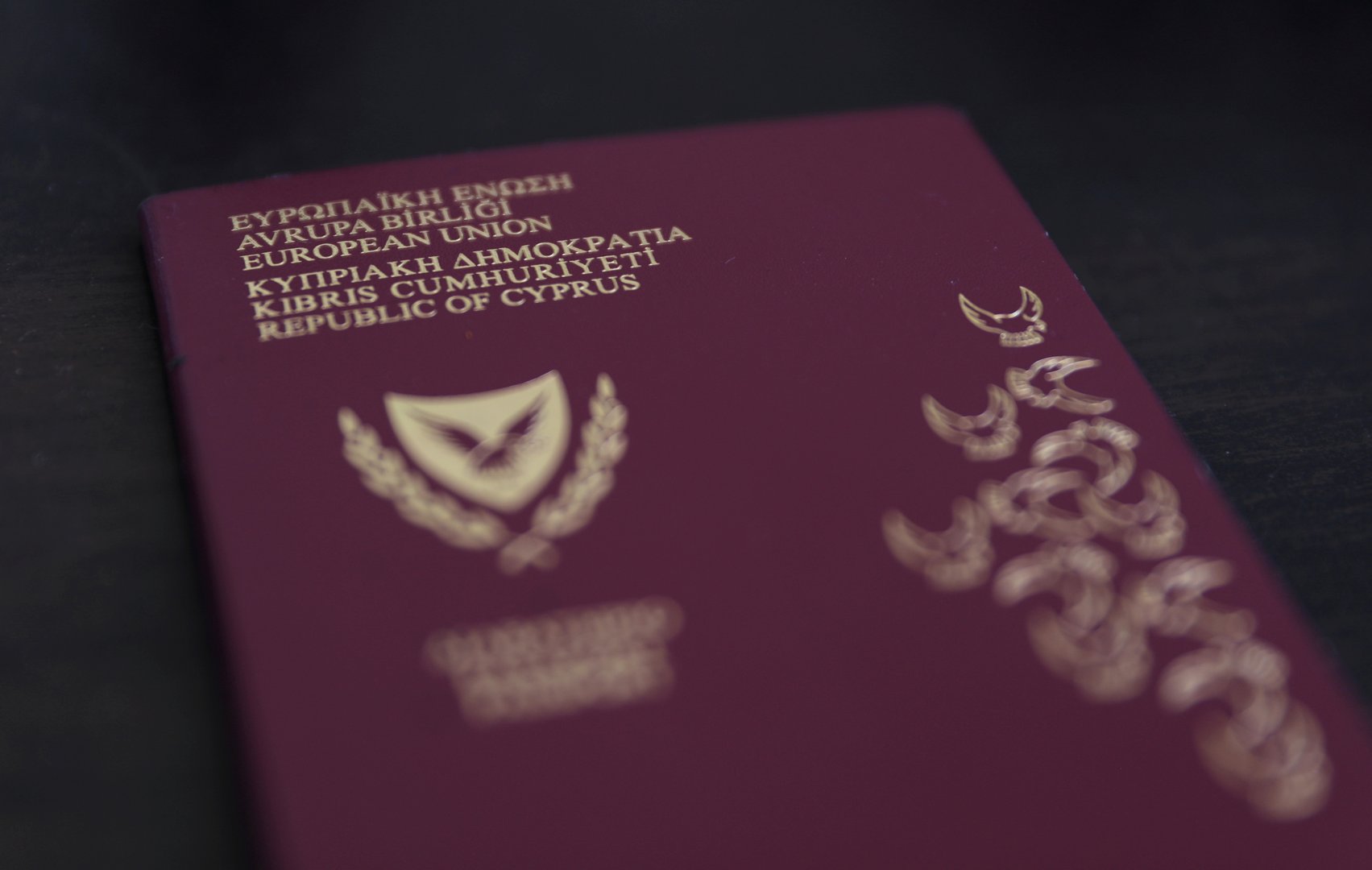Cyprus will have to examine all citizenships and residency permits given to Russian or Belarusian nationals “significantly supporting the war in Ukraine” under orders from Brussels on Monday, which called on all member states to immediately end national citizenship by investor schemes.
It also recommended that member states assess whether citizenship granted previously under a ‘golden passport’ scheme to Russian or Belarusian nationals are on an EU sanctions list in connection to the war in Ukraine.
These should be withdrawn, the EU said, adding that residence permits granted under an investor residence scheme to Russian or Belarusian nationals subject to sanctions should also be immediately withdrawn “following an individual assessment and in accordance with the principle of proportionality, fundamental rights and member states’ national law”.
“These measures should apply to Russian or Belarusian nationals significantly supporting the war in Ukraine,” the Commission said, adding that “strong checks” be put in place to address the risks posed by investor residence schemes.
Asked to comment on the European Commission’s order later in the day, President Nicos Anastasiades said that “to the best of my knowledge, of the 850 who have entered the list of banned oligarchs or members of the Duma, only one has a Cypriot passport”.
He was then asked whether this passport would be revoked.
“We will see, we are to this day one of those who support measures that for applying international law,” he said. “Therefore, such a decision must be taken for granted from our point of view as well.”
Cyprus terminated its citizenship by investment scheme in November 2020, some three months after an undercover expose by Al Jazeera showing high-profile individuals including the then House president appearing to be willing to smooth the way to a passport for a fictious businessman with a criminal record. The island was also censured by Brussels a number of times over its citizenship by investment scheme.
Following the axing of the citizenship programme, a new scheme for permanent residency was introduced. This had already existed but was revised and expanded.
“Some Russian or Belarusian nationals who are subject to sanctions or are significantly supporting the war in Ukraine might have acquired EU citizenship or privileged access to the EU, including to travel freely in the Schengen area, under these schemes,” the European Commission said on Monday.
Since the start of the Ukraine invasion, the EU has blacklisted nearly 700 top politicians, businessmen and military staff accused of supporting the Kremlin.
Currently, only Malta and Bulgaria still have citizenship schemes and they have committed to ending them. According to Reuters, a Commission spokesman declined to clarify whether it had asked EU states to provide lists of people who had bought visas or passports.
Commissioner for Justice and Consumers, Didier Reynders, said: “European values are not for sale. We consider that the sale of citizenship through ‘golden passports’ is illegal under EU law and poses serious risks to our security. It opens the door to corruption, money laundering and tax avoidance.”
He said all member states concerned should end their investor citizenship schemes immediately. In addition, they should assess whether they should revoke any ‘golden passports’ already granted to sanctioned individuals and “others significantly supporting Putin’s war”.
The Commission said that Investor residence schemes also raise inherent security, money laundering, tax evasion and corruption risks for member states and for the EU as a whole.
The checks on these would have to include establishing and carrying out checks related to the conditions of residence and security before issuing such residence permits, and verifying whether residence is continuous. Member states should also suspend the issuance of new residence permits under investor residence schemes to all Russian and Belarusian nationals.
A probe into Cyprus’ citizenship by investment scheme found that 53 per cent of the 6,779 citizenships given were unlawful and said politicians and institutions had political responsibilities while certain applicants and service providers may be held criminally culpable. The probe covered the period between 2007, when the scheme was introduced, and August 2020.
From the 6,779 naturalisations 3,609 individuals, or 53 per cent, concerned family members and company executives, which were naturalised unlawfully, the investigating committee found.
According to the report, of the 47 per cent of applications that were lawful, 34 per cent did not satisfy all the criteria.
However, even after abolishing the scheme, the government green-lit close to 400 passports for foreign nationals after the scheme was terminated.
Interior Minister Nicos Nouris, while presenting his ministry’s 2022 budget late last year, said the cabinet gave the nod to 390 applicants who had managed to file applications by October 31, 2020 – the day before the government officially nixed the programme.
The 390 Cypriot passports in question relate to foreign investors and family members.
That elicited the EU’s strong disapproval. In a hard-hitting statement last June, the Commission said it had decided to take further steps in the infringement proceedings against Cyprus regarding the remnants of the programme.
“While Cyprus has repealed its scheme and stopped receiving new applications on November 1, 2020, it continues processing pending applications,” the Commission said at the time.
Latest data released last week showed that Cyprus granted fewer citizenships in 2020 compared with the previous year, bucking the EU trend which saw a total of around 729,000 persons given citizenship of an EU member state, a three per cent increase from 2019.
Cyprus granted citizenship to 2,700 individuals in 2020, a further decrease from 2,900 citizenships granted in 2019, 3,200 the previous year and 3,700 in 2017, which was the highest number since 2009.







Click here to change your cookie preferences